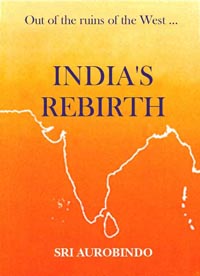|
Page1
 III
III
1923-1926
(In these years, Sri Aurobindo used to have daily talks with a few disciples on a wide variety of subjects, from his yoga to the prevailing national or international situation. The following excerpts from these talks, noted down from memory by some of the disciples present, provide glimpses of Sri Aurobindo's views on India's political, social, cultural systems and her spiritual possibilities.)
April 9, 1923
The ancients [in India] based their society on the structure of religion - I do not mean narrow religion but the highest law of our being. The whole social fabric was built up to fulfil that purpose. There was no talk in those days of individual liberty in the present sense of the term, but there was absolute communal liberty. Every community was completely free to develop its own religion, - the law of its being. Even the selection of the line was a matter of free choice for the individual.... In ancient times each community had its own Dharma and within itself it was independent; every village, every city had its own organization quite free from all political control and within that every individual was free - free to change and take up another line for his development. But all this was not put into a definite political unit. There were, of course, attempts at that kind of expression of life but they were only partially successful. The whole community in India was a very big one and the community culture based on Dharma was not thrown into a kind of [political or national] organization which would resist external aggression.
* * *
Author - Sri Aurobindo
|